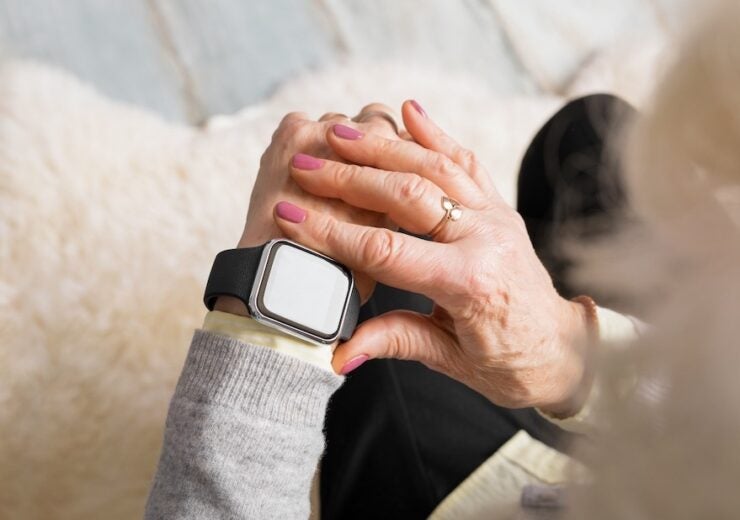In the study, led by scientists at the UK DRI and Neuroscience and Mental Health Innovation Institute (NMHII) at Cardiff University, smartwatches could identify Parkinson’s disease, up to seven years before the onset of key symptoms and clinical diagnosis

Smart watches can early detect Parkinson’s disease. (Credit: UK Dementia Research Institute)
A recent study published in Nature Medicine showed that smartwatches could identify Parkinson’s disease, up to seven years before onset of key symptoms and clinical diagnosis.
The study was led by scientists at the UK Dementia Research Institute (UK DRI) and Neuroscience and Mental Health Innovation Institute (NMHII) at Cardiff University.
In the study, scientists analysed data collected by smartwatches over seven days, measuring participants’ average acceleration, which is their speed of movement.
They identified that data from smartwatches could be used to accurately predict people who would later develop Parkinson’s disease, leveraging artificial intelligence (AI).
The approach that enables detection of the disease at a much earlier stage than current methods, can be used as a new screening tool for Parkinson’s disease, said UK DRI scientists.
The UK DRI at Cardiff study leader Cynthia Sandor said: “Smartwatch data is easily accessible and low-cost. As of 2020, around 30% of the UK population wears smartwatches.
“By using this type of data, we would potentially be able to identify individuals in the very early stages of Parkinson’s disease within the general population.
“We have shown here that a single week of data captured can predict events up to seven years in the future. With these results, we could develop a valuable screening tool to aid in the early detection of Parkinson’s.
“This has implications both for research, in improving recruitment into clinical trials, and in clinical practice, in allowing patients to access treatments at an earlier stage, in future when such treatments become available.”
The UK DRI researchers analysed data collected from 103,712 participants in the UK Biobank, who used a medical-grade smartwatch for seven days, between 2013 and 2016.
The researchers compared data from a subset of participants who are already diagnosed with the disease, to another group who were tested up to seven years after the data was collected.
The researchers concluded that AI can be used to identify participants who would later develop Parkinson’s disease, based on their smartwatch data.
Also, they found it to be more accurate than any other risk factor or other established early sign in predicting whether a person would develop Parkinson’s disease.
